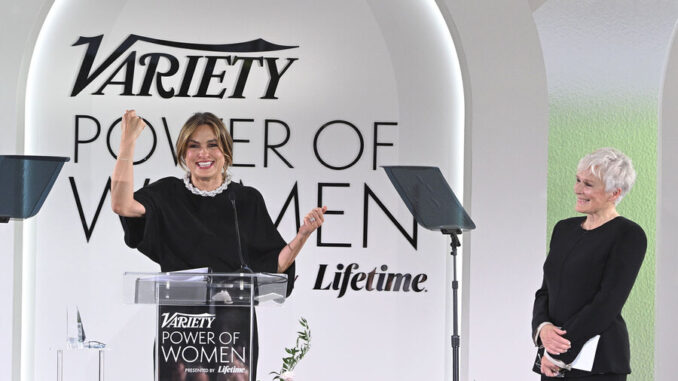
Mariska Hargitay's Powerful New Episode Leaves SVU Viewers in Tears
Television, at its most potent, transcends mere entertainment to become a conduit for shared human experience, a mirror reflecting our deepest fears, our most profound sorrows, and our most resilient hopes. Few shows have wielded this power with the consistent gravity of Law & Order: Special Victims Unit, and fewer actors have embodied the weight and responsibility of such a narrative like Mariska Hargitay as Captain Olivia Benson. When news broke that a "powerful new episode" had left viewers in tears, it wasn't just a sensational headline; it was a testament to the decades-long journey Benson has undertaken, Hargitay's unwavering commitment to her character, and the show's enduring ability to tap into the raw nerve of societal trauma.
The tears that flowed were not simply for a fictional character's plight; they were a collective release for two and a half decades of shared pain. Viewers have watched Olivia Benson evolve from a young, driven detective haunted by her own past into a beacon of empathy, a survivor who became a shield for countless others. Her personal scars – the ghost of William Lewis, the echoes of her mother’s abuse, the harrowing weight of every victim she’s ever championed – have been meticulously etched into her character. Each season adds another layer to her incredible resilience, another crack in her hardened exterior that reminds us of her humanity. When a "powerful new episode" causes tears, it’s because it likely taps into one of these deep, historical wells, forcing Benson, and by extension the audience, to confront an old wound or navigate an unprecedented emotional Everest. The tears are a recognition of her journey, an outpouring of empathy for a woman who has carried so much, for so long.
Beyond the meticulously crafted character, the tears are a direct tribute to Mariska Hargitay herself. It is impossible to separate Olivia Benson from the actor who breathes life into her. Hargitay’s portrayal is not merely acting; it is an embodiment. Her eyes, often shadowed with a profound weariness yet blazing with fierce determination, convey volumes without a single word. Her voice, capable of both a comforting whisper and a righteous roar, has become synonymous with advocacy and justice. What sets Hargitay apart, and what undoubtedly contributed to the flood of tears, is her commitment off-screen through the Joyful Heart Foundation. This dedication imbues her performance with an authenticity that transcends the script. Viewers trust her, not just as an actor, but as a voice for survivors. When she cries on screen, it's not just Benson's pain; it’s the universal anguish she so deeply understands and fights against every day. Her raw, unvarnished vulnerability in such a "powerful" episode becomes a shared experience, a collective gasp of recognition and sorrow.
Furthermore, the tears are a testament to SVU's unique and often uncomfortable legacy. For 25 seasons, the show has refused to shy away from the darkest corners of human experience. It has educated, provoked, and, at times, provided a form of catharsis for those who have experienced similar traumas. The "new episode" that sparked such an emotional response likely delved into a topic with a piercing relevance, a narrative thread that resonated deeply with the collective consciousness. Whether it touched on a contemporary issue, revisited a past injustice, or explored the nuances of healing, the show’s unflinching gaze forces viewers to confront realities they might otherwise ignore. The tears, then, are not just for the fiction playing out; they are for the real-world implications, the recognition of pervasive suffering, and the fragile hope for justice that SVU consistently champions.
In essence, the tears shed by SVU viewers for Mariska Hargitay’s “powerful new episode” are a complex tapestry woven from decades of character development, an actor’s profound empathy and advocacy, and a show’s relentless pursuit of uncomfortable truths. They are a powerful affirmation of the deep, almost familial, connection forged between audience and narrative. When Olivia Benson breaks, or triumphs, or simply endures, we feel it too, because in her journey, we see reflections of our own struggles, our own resilience, and our shared, fragile humanity. It’s more than just a TV show; it’s a cultural touchstone, and the tears are proof of its enduring, potent impact.
